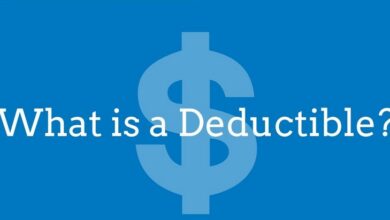What is Insurance Premiums?

Insurance premiums are a fundamental aspect of the insurance industry, serving as the financial backbone that enables individuals and businesses to mitigate risks and protect against potential losses. In essence, an insurance premium is the amount policyholders pay to their insurance providers in exchange for coverage against specified risks or perils.
This financial contribution not only ensures a sense of security but also plays a pivotal role in sustaining the overall stability of the insurance market. Understanding the dynamics of insurance premiums involves delving into the intricacies of risk assessment, actuarial calculations, and the various factors that influence the determination of these financial contributions. In this exploration, we will unravel the concept of insurance premiums, examining their significance, factors affecting their computation, and the broader role they play in fostering resilience in the face of unforeseen events.
Types of Premiums
Level Premiums
Level premiums offer stability, maintaining a constant rate throughout the policy’s lifespan. This consistency provides peace of mind, allowing policyholders to plan their financial commitments effectively.
Variable Premiums
Variable premiums, on the other hand, fluctuate based on various factors. Understanding the dynamics of these premiums is crucial for anticipating changes in financial obligations over time.
Factors Influencing Insurance Premiums
Premiums in insurance refer to the amount of money policyholders pay to their insurance providers in exchange for coverage against various risks. These payments are typically made on a regular basis, such as monthly or annually. The determination of insurance premiums involves a complex assessment of various factors, aiming to strike a balance between providing adequate coverage and managing the financial viability of the insurance company.
One key factor influencing insurance premiums is risk assessment. Insurance companies evaluate the level of risk associated with insuring a particular individual or entity. This involves analyzing factors such as the likelihood of a claim being filed, the potential cost of the claim, and the overall risk profile of the insured. Individuals or entities perceived to be at a higher risk of filing claims may face higher premiums as insurance providers seek to offset the increased financial exposure.
The type of coverage selected by policyholders is another critical determinant of insurance premiums. Different insurance policies offer varying levels of protection, and individuals can choose coverage based on their specific needs. The extent of coverage directly impacts the premium amount, with more comprehensive policies typically commanding higher premiums. Policyholders must carefully consider their risk tolerance and financial capabilities when selecting coverage types that align with their specific requirements.
Policyholder characteristics also play a significant role in shaping insurance premiums. Insurers consider factors such as age, gender, health status, and lifestyle habits when determining premium amounts. These characteristics provide insights into potential risks associated with the policyholder. For instance, younger individuals may be charged higher premiums for life insurance due to a perceived longer lifespan, while someone with a pre-existing health condition may face increased health insurance premiums.
Understanding Premium Payments
Premiums in insurance refer to the regular payments made by policyholders to insurance companies in exchange for coverage and protection against specified risks. The amount of the premium is determined based on various factors, including the type of insurance, coverage limits, and the individual’s risk profile. Understanding premium payments is crucial for policyholders to maintain continuous coverage and receive the benefits outlined in their insurance policies.
Payment frequency is a significant aspect of premium payments. Policyholders typically have options to pay premiums on a monthly, quarterly, semi-annual, or annual basis. The chosen frequency can impact the overall cost, with annual payments often offering discounts compared to more frequent installments. It’s essential for individuals to choose a payment frequency that aligns with their financial preferences and budgetary constraints.
Various methods of payment are available to policyholders, adding convenience and flexibility. Common payment methods include electronic funds transfer (EFT), credit card payments, checks, and online payment portals. Insured individuals can select the method that suits their preferences, making it easier to manage and track premium payments.
The importance of timely premium payments cannot be overstated. Paying premiums on schedule is crucial for maintaining continuous coverage and ensuring that the insurance policy remains in force. Late payments can lead to lapses in coverage, leaving policyholders unprotected and potentially resulting in the loss of benefits. Additionally, consistent and timely payments contribute to a positive relationship with the insurance provider, possibly affecting future premium rates and eligibility for coverage.
Frequently Asked Questions
What factors determine insurance premiums?
Insurance premiums hinge on various factors, including age, health, coverage amount, and type of insurance. Each element contributes to the overall risk assessment.
Can I lower my insurance premiums?
Yes, adopting healthy lifestyle choices, maintaining a clean driving record, and choosing a higher deductible can contribute to lower premiums.
How often do insurance premiums change?
Premiums can change annually or more frequently, depending on your policy and insurance provider. Stay informed about potential adjustments to budget accordingly.
Is there a difference between premiums and deductibles?
Absolutely. Premiums are the regular payments to maintain coverage, while deductibles represent the out-of-pocket amount you pay when filing a claim.
Can my credit score impact insurance premiums?
Yes, some insurance companies consider credit scores when calculating premiums. A higher credit score may result in lower premium costs.
What steps can I take to find the best insurance premiums?
Compare quotes from different providers, understand your coverage needs, and leverage discounts to find the most competitive premiums.



